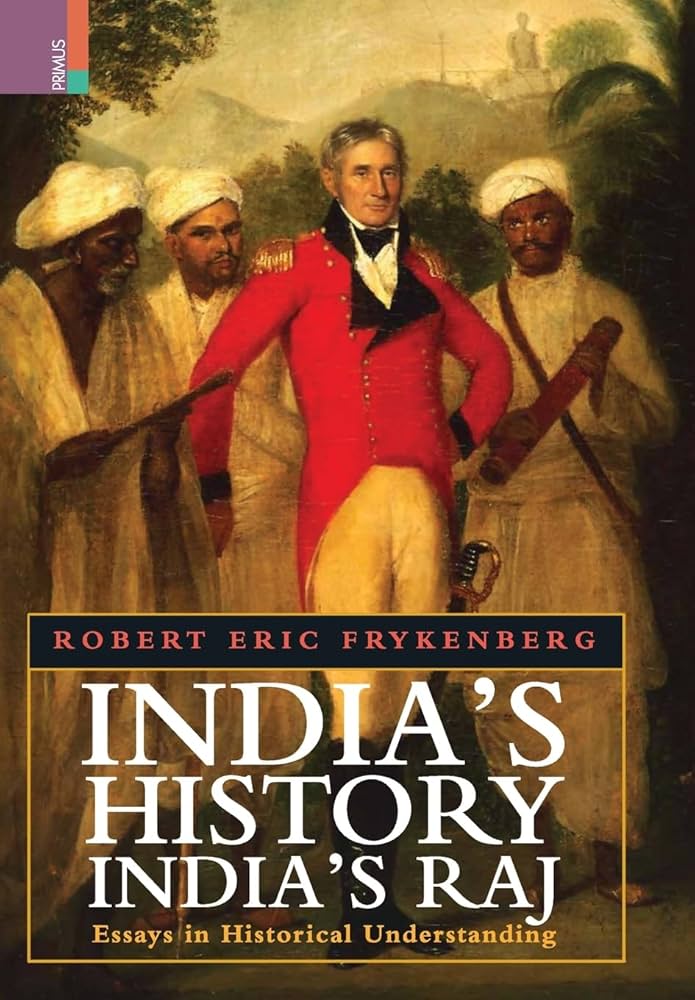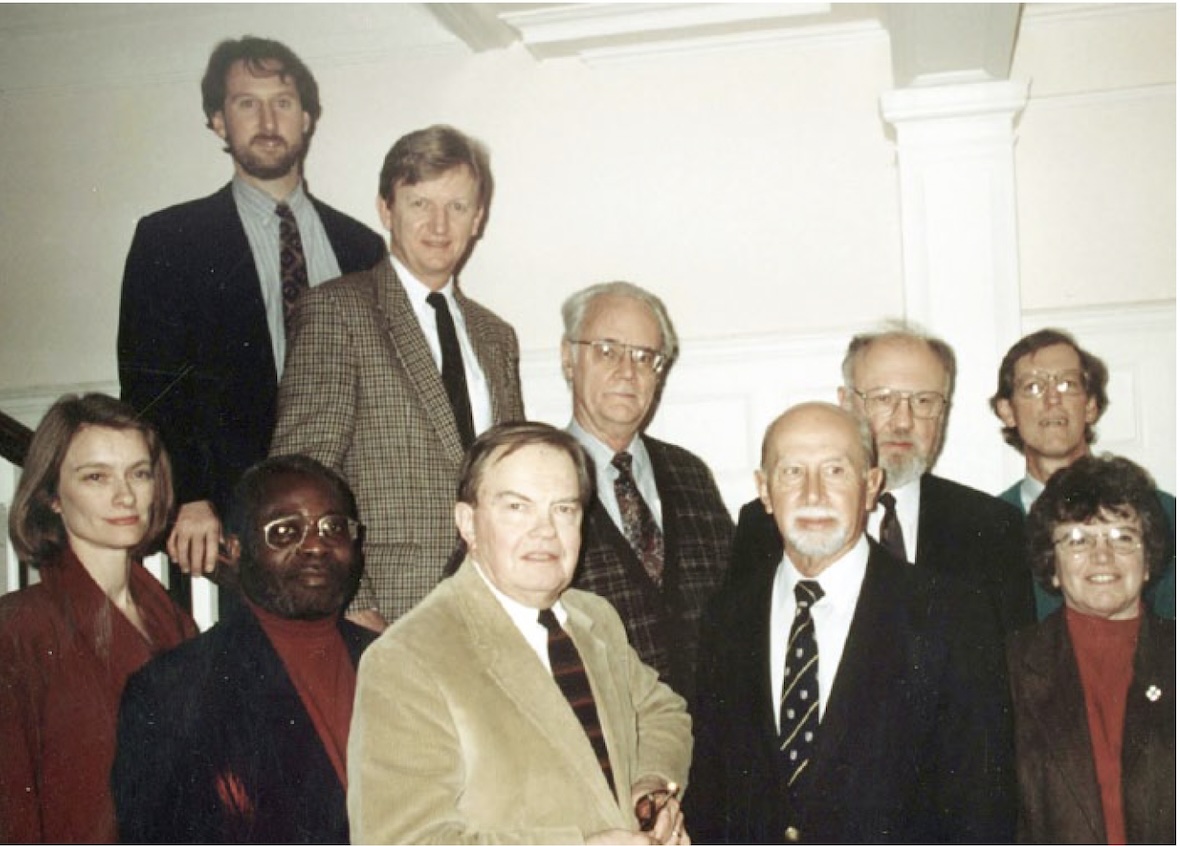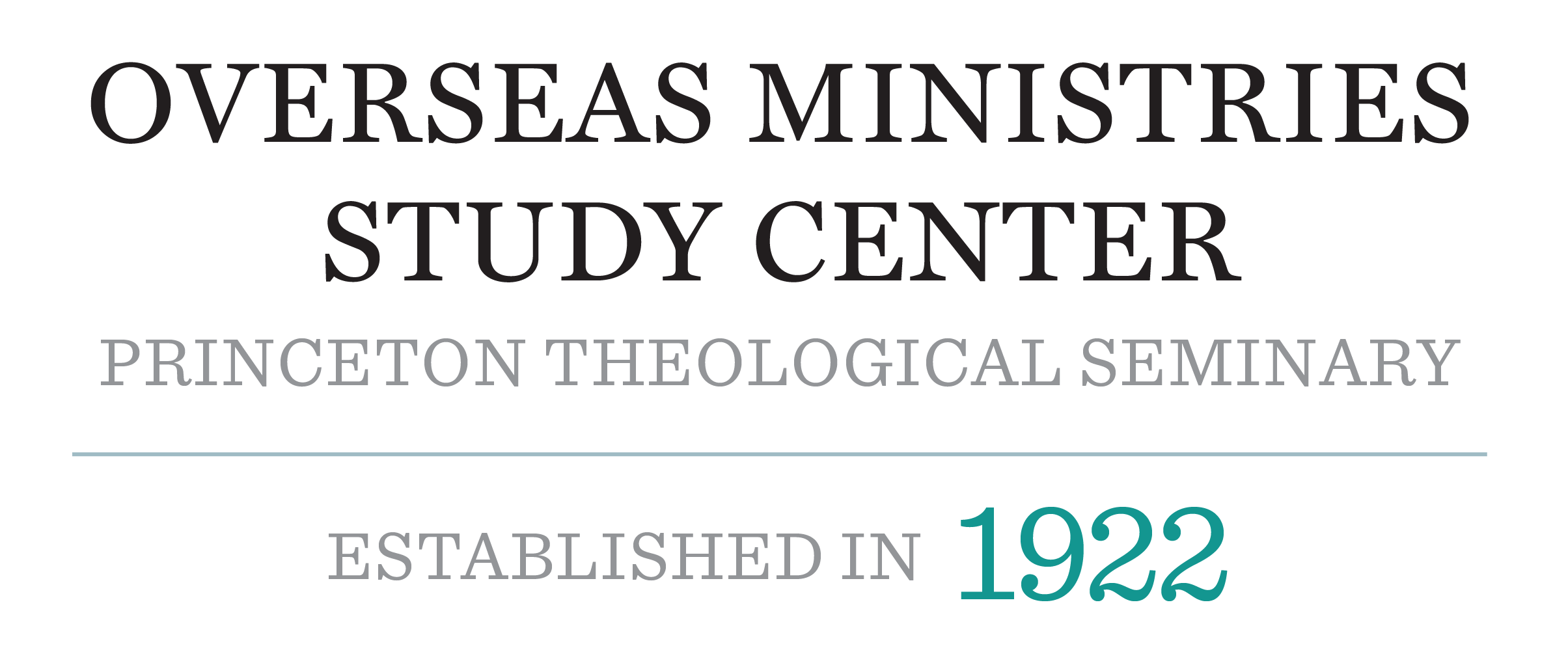By Stephen Di Trolio

The Occasional dedicates this special article to the life and memory of Robert “Bob” Eric Frykenberg, who had a deep impact on the formation and shaping of scholarship from missions history to world Christianity. Over the last few days, many friends and colleagues have shared memories of their time with Bob on the Yale-Edinburgh listserve. We are pleased to be able to share these cherished memories of an important figure with a broader public. Below you can find these personal memories, his academic profile, and select publications from the IBMR. His obituary can be found here.
Dr. Chandra Mallampalli – Historian of Modern South Asia, Mittal Institute Associate, Harvard University
On 15 April 2025, the world lost a renowned historian of modern India, Robert Eric Frykenberg. Many remember him as a warm and personable man who loved hearing the stories of everyone he met and loved telling stories from his vast learning and travels. Frykenberg was born in 1930 in Ootacamund as the son of Swedish Baptist missionary parents in Andhra. He attended Kodaikanal International School (South India) before attending Bethel University in St. Paul, Minnesota, studying political science at the University of California-Berkeley, and earning his doctorate in 1961 from the University of London’s School of Oriental and African Studies. He taught in the History Department at the University of Wisconsin-Madison from 1962 to 1997, during which time he wrote extensively on issues of systems of land control, religious conversion, Hindu nationalism, and the history of Christianity in India.
Frykenberg is best known for his book, Guntur District (1965), and his History of Christianity in India (2010), which both adopt an Indo-centric approach centered on the roles of Indians. Recently, all of his articles have been compiled into a volume titled India’s History, India’s Raj (2023). Reaching back to the very beginnings of his career, this book speaks to the breadth of his contributions.

Dr. Daniel Jeyaraj – Professor of World Christianity and the Director of Andrew F. Walls Centre for the Study of African and Asian Christianity at Liverpool Hope University
I am deeply sad that Professor Erick Frykenberg is no longer among us. His homegoing is an immeasurable loss to me. He was a mentor and a father in Christ—his wisdom, guidance, and unwavering faith influenced essential aspects of life and work in ways I will always cherish and value. Our bond began in 1996, when he first visited me in Chennai. From that moment, he became one of my most profound academic guides, spiritual mentors, and exemplary interpreters of British history in India. We spoke at least once every three months.
He took a deep and personal interest in my study on the German Lutheran Pietist missionaries (1706–1845), their Tamil partners, and their collective contributions to modernising Tamil-speaking regions of southern India. He meticulously edited sections of my forthcoming monograph, Christian Friedrich Schwartz (1726–1798): Ambassador for Faith and His Impact in South India and Beyond (August 2025).
Professor Frykenberg had a unique perspective on British history in India. From his missionary parents, he knew that without the active help of the local Indians, no missionary could do anything valuable and enduring. He applied this insight to examine the role of the British in India. He disliked the term “colonialism” as an imposition of the powerful on the helpless people. Instead, he framed it as a negotiated settlement between willing, powerful, wealthy, landowning Indian elites and the British in India. His ability to navigate complex historical narratives challenged and refined my understanding, especially regarding the decisive role of Indian elites in the formation, sustenance, and expansion of the Company Raj into the British Raj. Similarly, his monograph, Christianity in India: From Beginnings to the Present (2008), illustrates the partnership between Indian Christians and missionaries from West Asia, Europe, North America, and other countries over centuries.
Beyond scholarship, Professor Frykenberg was deeply compassionate and understanding. Whenever he called, his first concern was the well-being of my family, a reminder that faith and intellect should always serve a higher purpose: God’s reign. His generosity in sharing boundless knowledge was remarkable. For every question, he had a story, a book, an essay, or a scholar to recommend. He introduced me to his wider circles of friends and colleagues, who, in turn, have enriched my work in World Christianity, and it will continue to bear fruit. Although we will deeply feel his absence, we can celebrate his memory—his wisdom, kindness, and faith. Dear Bob, rest in peace. You were truly a light in this world!
Dr. Dana L. Robert – William Fairfield Warren Distinguished Professor, and Director of the Center for Global Christianity and Mission at Boston University
The death of Bob Frykenberg is a significant loss. Coupled with the imminent homegoing of Gerald Anderson, it means that the elders of the first generation of scholars who helped define World Christianity are nearly gone. I attach below a photo of the Research Enablement Program selection committee. In the early 1990s, with the support of The Pew Charitable Trusts, we awarded 100 grants to individual scholars who were part of the process of formulating what is now called “World” or “Global” Christianity. I keep this photo on my desk. It shows the committee that worked together for several years to select and distribute the money and hold colloquia with the grantees. The term “World Christianity” began to be used around 1992 to refer to the entire program. I have a draft of the description of the REP application form in my files, in which I have scratched out the term “Non-western Christianity” and replaced it with “World Christianity” to describe the research we hoped to support. Even so, not one of the successful applications used the term “World Christianity.” The popularization of the nomenclature grew during the 1990s and became widespread around the year 2000. May Bob rest in peace with his friends and colleagues and his wife, Carol.

Dr. Joel A. Carpenter – Former Provost and Professor of History, Emeritus, at Calvin University and former director of The Nagel Institute
Ah, Bob. What a privilege to know you and learn from you, dear friend. I will never forget my first encounter with Bob. I was working for the Institute for the Study of American Evangelicals (ISAE) at Wheaton College in the mid-1980s, and Nathan Hatch, then at Notre Dame and the ISAE’s co-founder, suggested that we invite Bob to come down from the U. of Wisconsin in Madison to give some talks on Christianity in India. To that point, Bob had been working primarily on “Hindu Revival” topics, the religious reform and renewal movements in India in response to rising Christian competition. But as the son of a missionary couple, Bob had followed the development of Indian Christianity too and was happy to come and give some talks about it. Later, Bob told me that our invitation “changed my life.” He was encouraged to take up the history of Christianity in India as his next big challenge, and the result, as we all know, was his magisterial work on Christianity in India (OUP, 2008).
Bob was on the REP selection committee, as Dana mentioned, and he also served, along with Lamin Sanneh, as a selector for the larger team project grants for research on world Christianity that we made from Pew, two or three per year, each at $ 300,000. Bob never ceased to amuse my assistant, Glory Donovan, when he would call and announce himself over the phone: “This is Frykenberg, comma, Robert.” Twenty years later, he and I were part of Lamin’s advisory team for Lamin’s OUP series “Oxford Studies in World Christianity.” I would pick Bob up at the Hartford airport, and we would drive together to New Haven for the advisory meetings. Bob was a great storyteller, and the miles and minutes flew by. It was far better than listening to NPR. Enjoy your rest, Bob. In the kingdom come, there will be plenty more history to write.
Dr. Richard Fox Young – Emeritus Professor of the History of Religions at Princeton Theological Seminary.
I was saddened to think that Bob Frykenberg is no longer with us. At the same time, I rejoice in having known him for over 50 years, as both a mentor and a caring friend. My debt of gratitude is huge, going back to the mid-1970s when I met him at a meeting of the American Oriental Society in Philadelphia, the first academic conference I ever attended. I was a doctoral candidate at Penn, just beginning to write my dissertation, later published as Resistant Hinduism: Sanskrit Sources on Anti-Christian Apologetics in Nineteenth-Century India (Vienna, 1981). Bob saw promise in it and followed my work with unflagging interest. It was always fortifying to know that a scholar of his caliber thought that what I did somehow mattered.
Bob was indefatigably supportive, a steady shoulder in the ups and downs of our lives. In the mid-1980s, I had rather recklessly gone off with my wife and family of three as Presbyterian mission co-workers at the invitation of the Jaffna Diocese of the CSI in Sri Lanka, only to find ourselves in the midst of a violent civil war. Without email, a return of letters could take weeks, but Bob was always the promptest of correspondents, and his advice helped lift the gloom of those dark days.
I have only the best of memories of being with Bob at panels on Christianity in South Asia at the European Association of South Asian Studies. What fun it was with Bob to traipse around a place like Copenhagen, dip into some Tranquebar historical documents, and be regaled with stories about his Swedish Baptist heritage and boyhood in Telugu country.
Bob was a historian’s historian. For anyone curious about Bob’s academic genealogy (his vamśāvalī, as he would call it), a helpful place to start might be the introduction I wrote for his festschrift published by Eerdmans in 2009. Thankfully, that oeuvre continued to grow post-retirement, with India’s History, India’s Raj (Delhi, Primus Books, 2023). For a thoughtful and more up-to-date history of Bob’s historiography than the one in the festschrift, see Chandra Mallampalli’s review. What a joy, really, to have been grafted onto the Frykenberg lineage of scholarship. Rest in peace, Bob.
Dr. Robert Frykenberg’s Publications in the IBMR
Here are select publications from his writing over many years in the International Bulletin of Mission Research:
- The Legacy of Christian Friedrich Schwartz (1999)
- Ãvarna and Adivãsi Christians and Missions: A Paradigm for Understanding Christian Movements in India (2008)
- The Legacy of Pandita Ramabai: Mahatma of Mukti (2016)
In addition to this material, Dr. Frykenberg, as mentioned, was an outstanding scholar with important additions to the scholarship of Indian history and Christianity in India – please find here his University of Wisconsin academic profile with extensive links to his many other publications.




